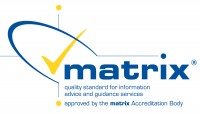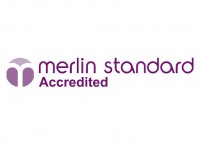False Harmony in the Workplace: Why 'Nice' isn’t safe, and what employers must do now

On the surface, many workplaces appear to be thriving. Meetings run smoothly, people are polite, conflict is rare. Leaders might look around and think, "We're doing well." But there's a question that doesn't get asked often enough: Is the harmony real? Or is it false?
False harmony occurs when the desire to avoid conflict outweighs the need for honesty. When people smile in meetings but stay silent on key issues. When inappropriate behaviour goes unreported because no one wants to "rock the boat." And in today’s climate of increasing regulatory expectations, particularly with the UK’s duty to prevent sexual harassment, ignoring these silent signals isn’t just risky, it could be non-compliant.
This article is a conversation starter. A moment of reflection. And, for employers who are ready to shift from surface calm to meaningful culture, a quiet invitation.
The global backdrop: Silence, safety, and the changing world of work
We’re witnessing a fundamental shift in how workplace health is measured. Not by how few grievances are filed. But by how many truths are spoken.
Across the UK, Europe, and North America, data shows a clear trend:
Psychological safety is dropping.
Burnout, loneliness, and mental health challenges are rising.
And employee voice is increasingly linked to business success and ethical risk management.
In the wake of movements like #MeToo and the post-COVID reshaping of values at work, employees are demanding more than respect. They want voice, transparency, and action.
A Harvard Business Review study found that organisations with a culture of voice are significantly more adaptive, resilient, and innovative. Silence, on the other hand, leads to stagnation, and in some sectors, compliance breaches.
We’re also seeing increasing scrutiny from regulators. In the UK, the new legal requirement for employers to take “reasonable steps” to prevent sexual harassment isn’t just about misconduct. It’s about culture. And false harmony is its enemy.
The quiet culture risk that’s costing you more than you think
False harmony often masquerades as a healthy culture. It sounds like this:
“We’re a close knit team.”
“There’s never any conflict here.”
“Everyone’s aligned.”
But the data tells a different story.
Only 26% of UK workers reported feeling psychologically safe during the pandemic.
Meanwhile, 48% experienced burnout and 32% felt lonely.
This isn’t harmony, it’s quiet erosion.
When disagreement disappears, so does challenge. And when people stop speaking up, organisations stop growing.
Improving psychological safety so just 60% of your people feel safe to speak up can reduce turnover by 27% and boost productivity by 12%.
False harmony doesn’t just keep people quiet. It keeps your organisation stuck.
Why silence isn’t safe, it’s a signal
Employee silence isn’t neutral. It’s a sign of risk.
Research shows that when people don’t feel safe to speak up, performance suffers. Decisions go unchallenged. Compliance weakens. And low-level issues quietly escalate into serious problems.
In fact, unspoken tension, not open conflict, is now one of the clearest indicators of compliance risk under the UK’s duty to prevent harassment.
That’s why we say harmony isn’t the goal, honest dialogue is.
So what’s the real cost of false harmony?
It’s not just cultural. It’s commercial.
Misconduct goes unreported, leading to tribunal claims.
Lack of feedback means poor decisions.
Passive-aggressive behaviour reduces collaboration.
Groupthink kills innovation.
And here’s the thing: most leaders don’t see it coming.
Until the exit interviews. Or the whistleblower. Or the investigation.
If you’ve ever thought, “we don’t hear complaints, so we must be fine”, this article is for you.
How PeoplePlus can help: Quietly, confidently, strategically
This isn’t a sales pitch. But we’d be remiss not to show you what’s working.
Across 1,700+ UK employers, PeoplePlus provides integrated support for compliance, culture, and social value, through:
The SRAG: The Social Recruitment Advocacy Group. A peer network driving inclusive hiring and safer workplace cultures through shared learning and Charter Mark recognition.
LearningPlus: Our learning platform offering over 350 bite-sized, multilingual courses. Training that equips people to speak up, manage conflict, and create inclusive workplaces that actually work.
These aren’t just solutions. They’re proof points. If you’re working to align culture with compliance, they’re ready for you.
Three questions to prompt the right conversation:
📍 What’s one behaviour in your team that looks like harmony, but might be masking fear?
📍 Where in your organisation do people stay silent, and what might it be costing you?
📍 How safe do YOU feel speaking up to your own leadership team?
The answers to these questions aren’t for us.
They’re for you. But if you’d like a sounding board, we’re listening.
What you can do next, with or without us:
- Check for signs of false harmony. Use pulse surveys or focus groups to understand what’s being said, and what’s not.
- Normalise respectful challenge. Train leaders to welcome feedback, not fear it.
- Make speaking up simple. Create low-friction, confidential ways for employees to share concerns.
- Build your capability. Use LearningPlus to upskill, and SRAG to benchmark and embed progress.
False harmony doesn’t announce itself. It blends in with civility. It hides behind politeness.
But when we start asking the right questions, and listening to the quiet, we can change it.
Let’s talk.
#FalseHarmony #SpeakUpCulture #PeoplePlus #SRAG #LearningPlus #Compliance #PsychologicalSafety #InclusiveLeadership #SocialValue








